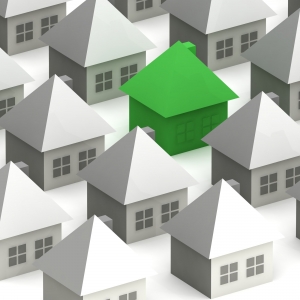The face of home ownership in South Africa is continuing to change as more black middle class homeowners move into the increasingly affluent suburbs; while the previously disadvantaged now comprise more than 50% of home buyers. Although strict loan requirements remain a hurdle to be overcome for those wishing to get onto the first rung of the property ladder, structures such as Rent2buy in affiliation with My Budget Fitness, are paving the way to a more prosperous future. Rent2buy was developed to assist frustrated sellers and buyers who fail to conclude a purchase and sale transaction of a property as a result of the decline of the home loan application of the buyer. Through the rent2buy concept, the buyer gets the opportunity to secure the property, with a right (an option) to buy the property say 6- 12 or 24 months later, once the buyer had the opportunity to improve his affordability and or credit profile,depending the reason why the bank declined the bond in the first place. During the rent2buy period a higher rent than the normal market related rent is usually paid – close to a bond repayment instalment – and the additional rent is credited towards a deposit for the buyer – with the result that once the buyer is ready to exercise the option to buy – he now has a much improved credit profile and affordability, plus a deposit, which all will improve his chances to secure a home loan. The buyer is assisted during the rent2buy period with a mentor and education how to go about to buy and eventually own his own home, plus budgeting tools developed exclusively by My Budget Fitness for this purpose. The education and mentorship on budgeting and home ownership continues after transfer of ownership is taken, to ensure sustainable home ownership for the new home owner.
Never a Better Time to Buy
Buying is almost always preferable to renting. After all, paying rent for a property which will never be owned, instead of paying a comparable amount for a house is logically more beneficial. Property is not getting cheaper and it is very much a buyers’ market right now with mortgage rates at their lowest for the last 4 decades. Investing in property now means that in 15 years’ time, most homeowners will have made a significant dent in reducing the capital borrowed to fund the purchase. While borrowing is reduced, the home is also increasing in value resulting in a win/win situation.
While it may be slightly cheaper to rent rather than buy at the present time, the economic models on which statistics are based assume that renters could invest their money elsewhere. However, given that the rate of saving has declined since the 1970’s (when it stood at around 6.6%) to negative levels in today’s market, this is unlikely. Over a 10-15 year period, renters will spend slightly less than they would on mortgage payments, but would have nothing to show for it. At the current time, investing in buying a home means that buyers could end up at the end of a comparable period with an asset worth double the original purchase price you paid for it.
Home Owners Insurance
As part of the agreement for the mortgage bond granted to you by the bank, homeowners will be required to take out a comprehensive insurance policy equal to the value of your home, usually with the bank itself. This is so that the cost of repairing or rebuilding the house is covered in the event of catastrophe. Home owners insurance will not only cover the structure of the building, but also eventualities such as: burst geysers and any consequential damage; fixtures such as bathrooms and fitted kitchens; as well as often being extended to cover garages, greenhouses and other external features such as walls and fences. The usual criteria is that if the fixture cannot be easily removed and ported to a new home, it will be covered. The insurance also allows for temporary re-housing in the event of the home being uninhabitable for the duration of any repair work which may prove necessary.
There are a number of advantages to taking out home owners insurance with the bank that grants the bond. Usually the bank’s premiums are very competitive and often less expensive than buying elsewhere. It is easy to apply for the insurance because it is linked to the bond, with no administrative or review fees payable, neither will there be any penalties for previous claims or for submitting a claim in the event of a problem.
Black Property Ownership
With total home ownership in South Africa standing at 65%, much higher than, for instance, Germany and on a par with the United States where ownership stands at 66%, ever increasing numbers of people are choosing to take the step up to owning their own home. Between 1994 and 2011, the government has built over 3 million houses, predominantly for black households, and banks have been focused on paving the way for black ownership with most banks giving 100% loans to households with earnings of under R16,000 a month.
Black ownership of South Africa’s primary residential market stacks up to 41.7%, emphasising the radical change which has taken place in the market place since the mid 1990’s.
Johannesburg has seen the largest shift in home buying, which is favoured for its proximity to Soweto. Suburbs such as Ormonde, Meredale, Kibler Park and Ridgeway have all seen significant rises in black middleclass home ownership. The greater Randburg area has seen a rise in middle income black buyers working in both financial and corporate sectors. More than 50% of buyers are now from the black middle class demographic.


